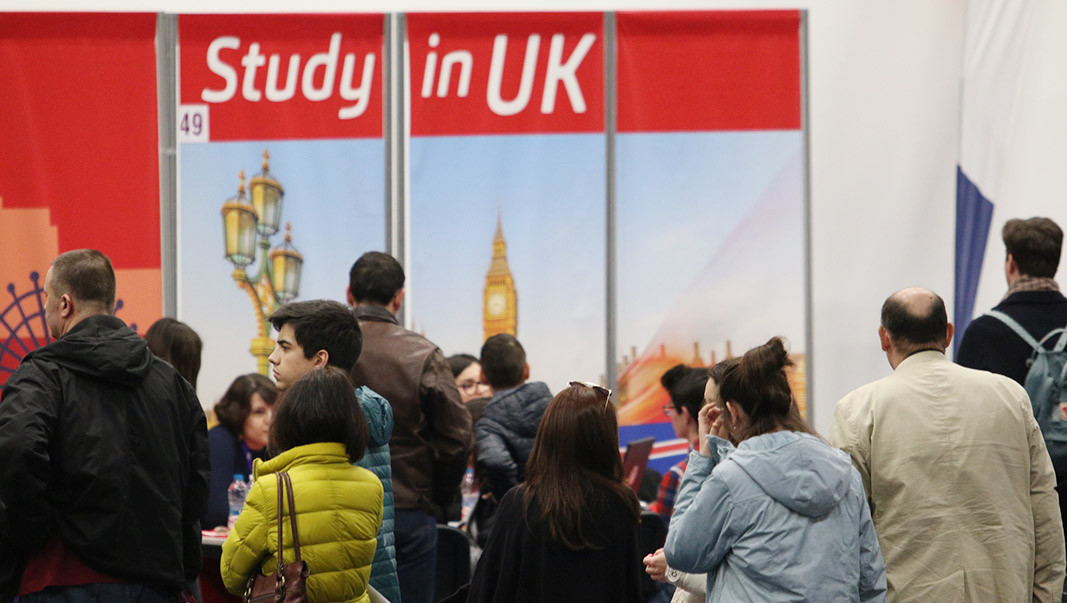The coronavirus restrictive measures kept millions of tourists around the world firmly at home, but have not deterred young Bulgarians from traveling abroad to gain a university education.
During the new academic year their number is expected to reach 5,000 to 5,500. That means a drop of around 5% in the number of applicants to universities abroad compared to last year. And the cause of this drop in numbers is not so much fear of Covid-19, as the fact that there are fewer young people graduating from secondary school in 2020 in Bulgaria. Top of the list of countries young people from Bulgaria choose for their university education are the UK, the Netherlands, France, Belgium, Denmark, Germany, Sweden. Many have already left for their chosen universities, even though this year they offer a mixed model of tuition – online and in-person. Interest has dropped more substantially, compared to last year, in education in Great Britain. This is the last year in which conditions for EU students there remain unchanged, after which students from Bulgaria will have to pay the same fees as students coming from non-EU countries.

1,200 applicants from Bulgaria have been accepted at British universities this year, the preferred fields of study being computer sciences, mathematics, biology, law. Summarized data about how people feel about studying abroad, were presented by the biggest consultancy company mediating between universities abroad and applicants from Bulgaria. For the 17th time it organized a World Education Fair, though this is the first time it is taking place in two formats – in-presence and online.
“This year we were placed in a situation in which we had to be very flexible. We got calls from hundreds of Bulgarian families who still think that, despite the crisis, the most important thing for their children is education,” said Nikolay Hristanov, manager at a world education consultancy company for Radio Bulgaria:

“This year universities made even bigger investments so as to be able to offer high-quality education via various online platforms. Tuition fees have remained unchanged – they have neither gone up nor down, they have remained the same as before the pandemic.
Students prefer in-person education, nevertheless they are happy with a hybrid model with a choice between the two, as it helps them adapt more easily, and also allows for late arrivals, in view of the situation. But they also want to be in an international environment, socializing with the other students, in-person contacts with lecturers are key to the quality and comprehensiveness of education.”
Business and economics, as well as computer programmes are top of the list for university applicants because they offer good career opportunities after graduation. Other fields of study that are definitely in demand are psychology, international relations, electronic game design, interior and graphic design, as well as media and communications.

“There were no admission exams this year. The most important things this year were the grades from secondary school, the motivation, the additional extracurricular activities, good command of the language of instruction – English, German, French,” Nikolay Hristanov says and gives the following advice:
“There are universities abroad which want certain subjects to have been studied at secondary school. Making an early choice is crucial to success, and that is something that is not going to change.”
Photos: BGNES
Researchers from Bulgaria and abroad are gathering in Sofia for a scientific conference. The forum will be held on October 16 and 17 in the building of the Institute of Ethnology and Folklore Studies with Ethnographic Museum at the..
The Sofia Zoo has a new resident – an 11-year-old male snow leopard, BNT has reported. He comes from Nordens Ark Zoo, located in Bohuslän, Sweden and is named Araatan. Some time ago, a female leopard arrived from the Helsinki Zoo,..
20 nominees from 11 countries – that is the number of contenders for the “Bulgarian Woman of the Year 2024”, named in honour of Saint Zlata of Meglen . The award has been presented every year since 2009 by the Executive Agency for Bulgarians Abroad..
Veliko Tarnovo is hosting the Urban Wine Fest, organised by the Bulgarian Association of Wine Professionals. "October is the month of Bulgarian wine and..
Sofia is hosting the finals of ER Champ 2025 — described by the organisers as the world’s largest international escape room competition . Taking place on..
More than 500 people from across Bulgaria are gathering today in the village of General Todorov, near Petrich, for the national festival “Once Upon a..

+359 2 9336 661
